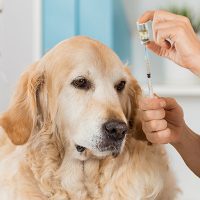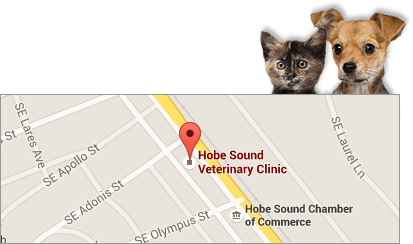One very important part of dog ownership is making sure your dog stays up to date on his vaccinations. This is actually required by law in many places, and with good reason. Vaccinations help build your pup’s immune system, protecting him from dangerous and deadly diseases. They also help curb the spread of infectious disease. Because some diseases—such as rabies—can be transmitted to people, human safety is also a factor. In this article, a vet discusses important vaccines for dogs.
Core Vaccines
There are four main vaccines, generally called core vaccines, which all dogs should have. These are canine parvovirus, distemper, canine hepatitis, and rabies. Canine parvovirus—or parvo, as it is sometimes called—is a deadly disease that affects dogs’ gastrointestinal systems. It is extremely contagious, and can be spread very easily, even without direct dog-to-dog contact. Puppies are at high risk, as are unvaccinated dogs. Distemper is another dangerous virus. It can affect dogs’ gastrointestinal, respiratory, and central nervous systems. Canine hepatitis is an acute liver infection, which is transmitted through body fluids, such as blood and saliva. The rabies vaccine is also crucial. Many people don’t realize that rabies has a 100% fatality rate in people once symptoms begin to show. It’s extremely fatal for dogs as well. The importance of rabies prevention is highlighted annually on World Rabies Day, which aims to raise awareness and promote global prevention efforts.
Non-Core Vaccines
In addition to the core vaccines, your vet may recommend a few other vaccines, depending on your dog’s exposure risk. These vaccines—known as non-core vaccines—include vaccines for Bordetella bronchiseptica, Borrelia burgdorferi, and Leptospira bacteria. Bordetella affects dogs’ respiratory system, and is often known as kennel cough. You may not know the term Borrelia burgdorferi, but you may be familiar with it regardless. It is the bacteria responsible for Lyme disease, which, as you may know, is generally tick-borne. Leptospira bacteria causes Leptospirosis, an infectious disease that can affect both pets and people.
Vaccination Schedule
Fido’s vaccinations should start when he is about 6 to 8 weeks old. Typically, they are administered in groups, and are given every 3 to 4 weeks until puppies are about 4 months old. Once your dog is an adult, he should only need booster shots. Some of these should be given yearly, while others may only be needed every few years. Ask your vet to recommend an appointment schedule.
Please contact us, your local animal clinic in Hobe Sound, FL with any questions or concerns about vaccinations, or about your dog’s health or care. Our Veterinary Wellness & Pet Vaccinations service can help ensure your dog stays up-to-date on all necessary vaccinations and preventive care. We’re always here to help!




